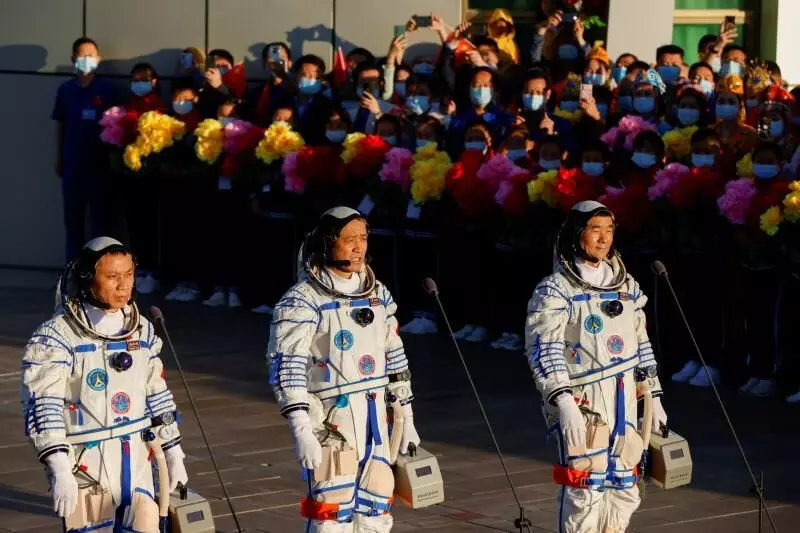
China launches its crewed spacecraft carrying 3 astronauts to new space station
text_fieldsChina has sent out a Long March 2F rocket flying from Jiuquan Satellite Launch Center in northwest China on Thursday carrying its crewed spacecraft, the Shenzhou-12, and three astronauts to the nation's new Tiangong space station.
The astronaut trio, including Nie Haisheng, Liu Boming and Tang Hongbo, is expected to reach the 16.6 meters-long Tianhe, the core module of the Tiangong space station, about six to eight hours after the launch and will spend three months aboard conducting further construction missions.
"There are many tasks, the tasks are arduous and there will be many challenges," said Nie, a former air force pilot.
During their three months mission, the astronauts will conduct two spacewalks and perform scientific experiments such as testing a new robot arm and regenerative life support systems.
"They're going, from day one, all-in to be much more aggressive in their use of this space station. They've got two experienced astronauts and one newbie, and that makes sense for what's essentially a test flight to the new station," said Jonathan McDowell, an astronomer at the Harvard Smithsonian Center for Astrophysics.
Following this mission, the Chinese space agency is planning to send another set of three crewed spacecrafts and two lab modules. The space agency expects to complete its construction by the last quarter of 2022.
The crew had to undergo more than 6,000 hours of training, including hundreds of underwater somersaults in full space gear as a preparation for the mission.
Tiangong is more likely to be focused on running experiments on the Chinese station for other countries, or hosting astronauts, according to McDowell.
The US has placed a ban on any sort of cooperation with Chinese astronauts on the International Space Station (ISS), a collaboration between the US, Russia, Canada, Europe and Japan. Even though the ISS has functional potentiality beyond 2028, according to NASA, it is due for retirement after 2024.























